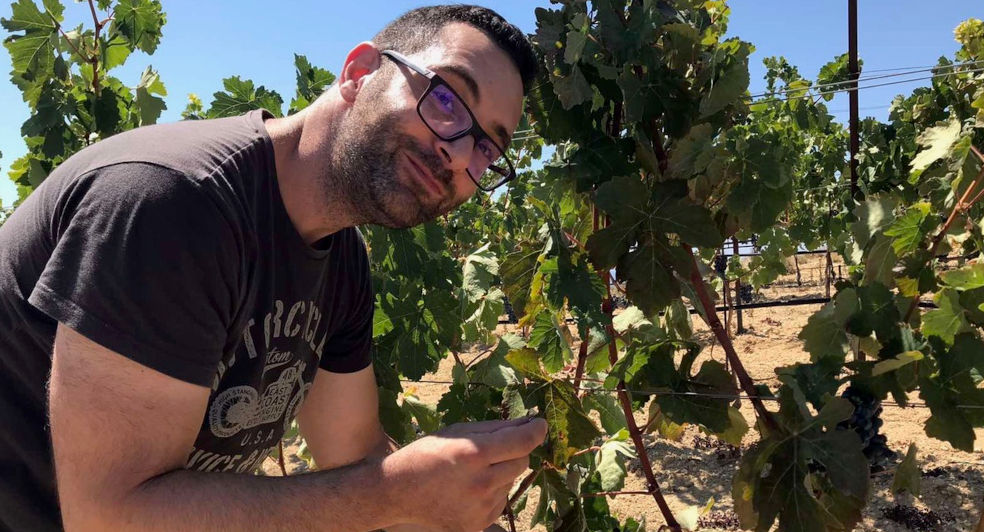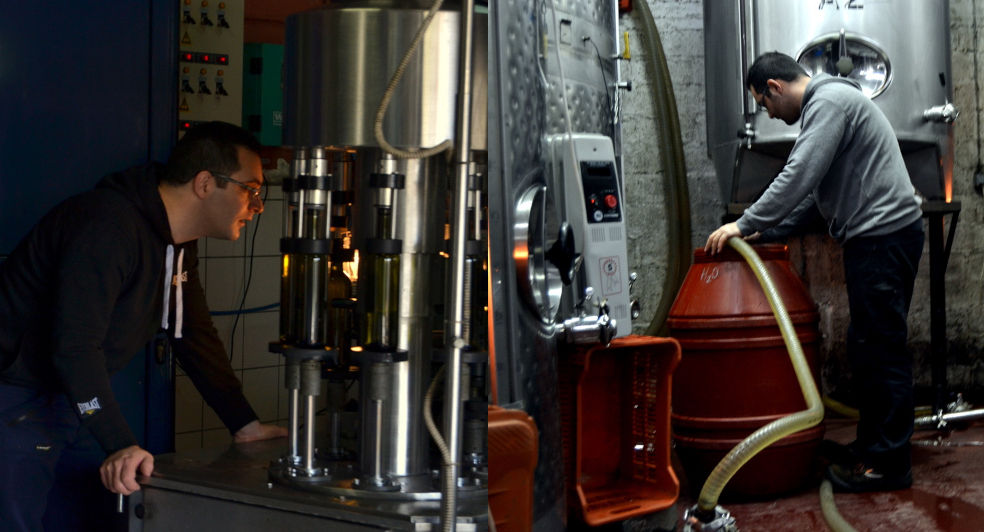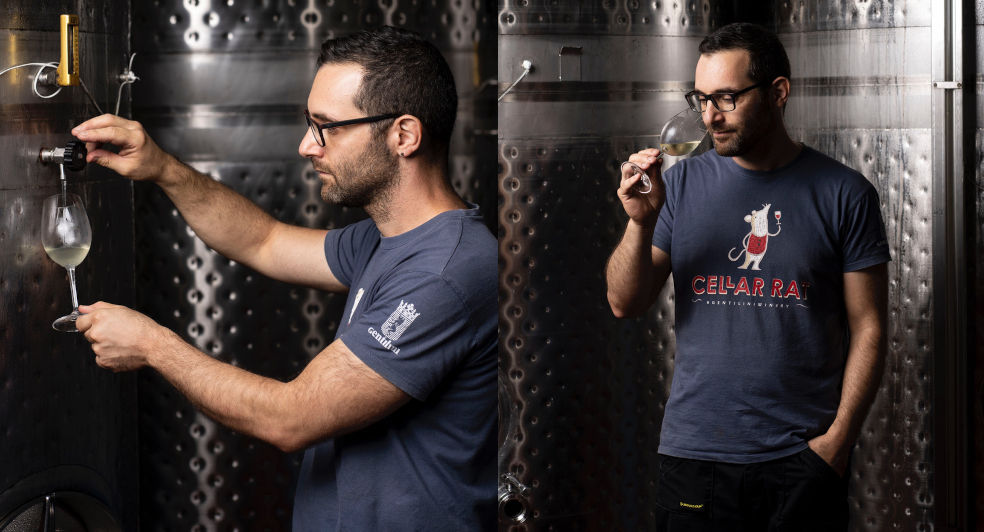Interview With A Winemaker – Alexandros Georgios Doukas
21st April 2023

Wine isn’t just made, it’s crafted by the unwavering expertise of a Winemaker, sometimes old traditions are passed down by generations and on other occasions, new people venture into the industry, introducing us to new creations. This series of Winemaker Interviews will help you uncover the vast world and skills of how the artists passionate about wine make the world a bubbly place.
In this feature we speak with Alexandros Georgios Doukas, Head Enologist at Gentilini Winery and Vineyard from Kefalonia, Greece, let’s discover a little about his time in the Wine Industry.
Tell Us About Yourself
“If I could use three words to describe myself, they would be Rationalist, Realist and Observant. I have an innate curiosity and I believe that wine at all stages of its production creates challenges that Oenologists have to overcome.
Trying to make a tasty and successful wine is relative (more utopian I would say), since for everyone taste is subjective. I personally like wines whose flavors and aromas are distinct, complex, without objective organoleptic defects that a large part of the world considers as “Funkiness”.
I really am in love with winemaking. Since 2005 when I started my wine journey, I have worked in five oenological zones of Greece (Nemea, Amyntaio, slopes of Meliton, Santorini and Kefalonia) vinifying some of its most famous native varieties (Agiorgitiko, Xinomavro, Roditis, Assyrtiko, Robola and Mavrodafni).
Since 2015 I am the winemaker and viticulture consultant of Gentilini Winery and Vineyard located on the island of Kefalonia in Western Greece. In addition, for the last 4 years I have been working on a new project concerning the special and very dynamic Goustolidi variety, which in Kefalonia is known as Vostilidi.”
How Did You Become Involved In The Wine Industry?

“Serendipity!! A sum of coincidences brought me to the wine area! I don’t come from a family that deals with wine and getting into wine was more of a choice than a necessity. I was born in Athens’s suburbs and had no contact with vineyards or wineries.
When I first worked in a winery, surprisingly I knew that this is what I want to do for the rest of my life! Some things happen for a reason, that we cannot explain. For example, if I blend two or more wines together does the result get better over time and why? What is this that gives surplus value through “blending”?
The questions above are rhetorical because substantive answers cannot be given.
It’s like one of Confucius’s quotes “We have two lives and the second begins when we realize we only have one.”. The second one started for me when wine appeared in my life.”
As A Winemaker, What Has Been Your Hardest Obstacle to Overcome In Producing Wine?
“Wine is the only product whose raw material is produced once a year and is never the same as the previous year. This, of course, is also the magic of my profession. Beyond the stereotypes that people believe about Oenologists, the only thing that is certain is that it is a very demanding job that, like any other, you have to accept its peculiarities.
The harvest season is one of the most difficult obstacles that all Oenologists around the world face every year and have to overcome. 95% of the wine quality is made during the harvest season. This is why the harvest is so stressful and painful.
I treat every stage, from the cultivation of the vine to the bottling, with great seriousness and care. Imagine if you could break the wine production process into successive individual parts. Each section, therefore, needs special attention and observation because everything can go wrong. Again, imagine that after much effort, you have made the best wine in the world and you are ready to bottle it. Carelessly you didn’t check a batch of natural corks contaminated with TCA (2,4,6-trichloroanisole). Congratulations you just got fired!”
How Do You Determine When Your Wine Is Ready To Drink?

“A motto that I use very often in my personal life is “It depends on what you want to do!”
Its association with wine is integral. I can’t describe it in one word. One thing is certain, each variety of grape and by extension, the final product needs time, persistence and patience to unfold all its aspects. All you can do is wait. Depending on what you want to achieve, you have to choose between the stages you will intervene and the decisions you will make to get the desired result.
I will give you again an example. If you want to make a bottle of wine, you should think from the very start about which variety you are going to use, what the organoleptic characteristics should be, whether it will be able to age or it will be closer to commercial wines, which barrel to use, the material of the wine tank, etc.
So…it depends on what you want to do!”
What Part Of The Wine Making Process Do You Enjoy The Most?
“All stages of the winemaking process have their beauties. I think it is very difficult for an oenologist to single out a stage. If I really had to choose one, it would be the art of blending. It is the most difficult and intriguing stage in the production of wine. When I try to pull off a blend consisting of a combination of different tanks, the options are endless. The art of blending is directly affected by my mood and my own decision can give a very different result every time.
The philosophy of each winery plays a very important role, and certainly, in each blend, the character of a Winemaker is primarily included. This is also the main reason why, within an oenological zone such as that of PDO Kefalonia, all 10 wineries of the island bottle 10 different versions of Robola, which is also the main white grape variety of the island.”
Thank you Alexandros, for sharing your words, knowledge and experience with us and we at Glass of Bubbly wish you the very best for the future!
Images belong to Alexandros Georgios Doukas. Glass of Bubbly was granted permission to use them.
![]()
Oliver Walkey
Champagne and Sparkling Wine Writer, Focused on Bringing the Exciting and Fascinating World of Bubbly to You.
